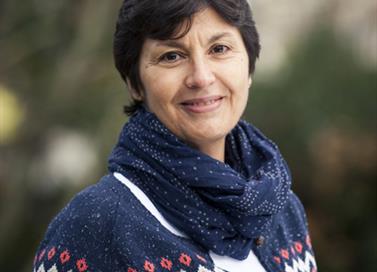A Fantastic Woman
13 July, 2018
Introduction
A Fantastic Woman is a feature-length Chilean film, in Spanish with English subtitles, directed by Sebastian Lelio. It was released in 2017.
The screen play was written by Sebastián Lelio and Gonzalo Maza and deals with the difficulties of sudden bereavement for a transgender woman in a relationship with an older man. In the lead role is a real transgender woman Daniela Vega, playing Marina, who has received much praise for her performance.
Not an actress before this film, Vega was initially hired by the director as a script consultant to provide insight into the Chilean transgender community. During this period of consultation Lelio decided to offer Vega the lead role. Vega’s musical performances are her own.
A Fantastic Woman is the first transgender character lead film to win an Academy Award (an Oscar) for Best Foreign Language Film of the Year in 2018.
The Film
The film is set in Santiago and opens with an older man, Orlando, having a massage in a Turkish Bath club called Finland. He walks to a bar where he watches a singer finish her set.
The singer is his lover, Marina, a transgender woman much younger than Orlando’s fifty seven years. He takes her for a meal for her birthday and then back to his apartment that she now shares.
Their sexual passion for each other is evident. When Orlando wakes in the night feeling unwell, Marina is worried. He is confused and collapses. She takes him to the hospital but not before he has a fall down the stairs next to the apartment sustaining an injury to his forehead and limbs.
Unfortunately Orlando dies soon after his arrival at the emergency department and Marina is told he has suffered an aneurysm. His death is sudden and completely unexpected.
After Orlando's death
Marina is thrown immediately into the role of bereaved partner but with no recognised authority. Added to her helpless position, she is suspected of having a possible role in his death as evidenced by his superficial injuries.
When she contacts the family they make it clear that her involvement is not wanted and they show no understanding of the love she shared with Orlando.
The medical staff contact the police with suspicions and Marina is visited whilst at work the next day by a member of the sexual offences team.
She questions Marina as to whether Orlando paid her and then demands that she be subject to a full physical examination.
The humiliation of undergoing such a procedure is palpable but Marina realises that to refuse would lead to worse consequences.
The funeral
Her quest to say good-bye to her lover, at both the funeral and then the wake, forms the main narrative of the story.
The family ask her to leave the apartment they shared as soon as possible and when she doesn’t, her bags are packed and left outside the front door by Orlando’s adult son Bruno.
The dog that Orlando gave to Marina within their relationship has disappeared too. Marina’s request to have her dog back represents the other struggle she engages with, to retain something of the life she had shared with Orlando.
When Marina defies the family’s wishes and appears at the funeral she finds herself hijacked by Bruno and two other men. They threaten her in the most brutal manner and dump her in a rough part of the city.
Despite this, Marina appears at the crematorium just after the ceremony and manages to see Orlando’s body just before he is cremated, aided by a visual hallucination of him guiding her way to the basement of the building.
Throughout the film Marina is seen to use day dreaming fantasy to cope with perhaps unbearable emotions and struggles.
Relevance to the Field of Mental Health
A Fantastic Woman is an important film to watch for anyone seeking a better understanding of the issues facing the transgender community.
As mental health professionals it is crucial to be aware of and sensitive to these matters and this film offers an excellent learning opportunity.
Additional reading of the recent position statement issued by the Royal College of Psychiatrists in March 2018 entitled supporting transgender and gender-diverse people might be useful.
Transphobia
In particular, the film explores and brilliantly represents the transphobic hatred and discrimination directed at Marina.
The scene in the car when she has been hijacked by Bruno and others will not fail to bring discomfort to the viewer offering an empathic experience of the visceral fear that such violence so often brings and perhaps confronts us with uncomfortable emotions that are the lived reality for so many individuals in our communities.
Marina’s strength and resilience are impressive as she struggles to manage her own personal grief whilst being obstructed so deliberately by Orlando’s family.
Her ability to process the sudden bereavement is seen to be so much more complicated because she is a transgender woman.
I would urge everyone working in the mental health profession to watch this film at a time when transgender issues and rights are in focus and perhaps under increasing threat in certain parts of the world.
To quote the director Lelio; “I think that this film is about the limits of empathy. In other words, what are we willing to allow, as individuals and as a society. Who defines what is legitimate or not in terms of love, and who claims that right, and with what motives.” He goes on to suggest that there is a trick to this film, quoting Lelio again; “you think that you are watching Marina and the film, when in reality, it’s the film that’s watching you, and asking you what side you’re on, and what your stand is.”
This is the challenge that A Fantastic Woman puts before us and it is most definitely a film for our time.



